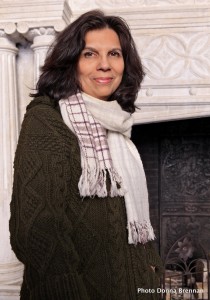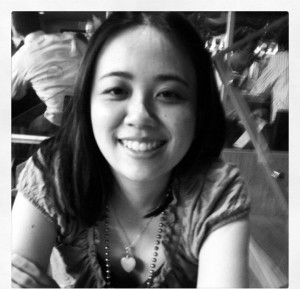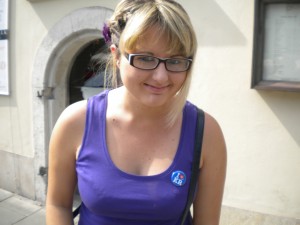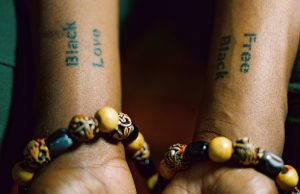Poem Suite: Family
3/4 Profile
by Rasiqra Revulva
“A night full of talking that hurts,
my worst held-back secrets: everything
has to do with loving and not loving
This night will pass.”
-Rumi – “There You Are” (translated by Coleman Barks)
my mother inserts
her every displeasure
like an implacable speculum, cranked halfway
fever-warm from her bare hands
and issuing vibrations
of up to one thousand censorious megahertz.
a spaghetti strap loose around a shoulder and
a cardigan partially unbuttoned
are each further steps towards
a night full of talking that hurts.
the words i sense along with her breathing
in the clutch binding mothersanddaughters
(the purveyors and receivers of wilful sense-death)
needing no definition
once shrieked or wailed or hissed
—fucking slut fucking SLUT— believing
my guilt, though mysterious, somehow fated,
stained by the shadow of her claims
aghast as she persists, revealing
my worst held-back secrets: everything
i’ve known or could be knowing
months and reams of
fawn-coloured newsprint, greased with pencil lead
bare breasts and open mouths culled from vodka ads and porno sites and
to this day, i can’t attempt an erect nipple nor
vulva in any gallery showing
for fear this stain will never fade
and she will never see how
family, just as much as fucking
has to do with loving and not loving.
This night will pass.
GIRLHOOD
by Carina Yun
In the basement,
my mother’s broken washing machine spits.
Behind the staircase,
he has my birthday present—
his old Brandy box,
a pack of Marlboro cigarettes, and Santa’s red hat.
My father says I should have been a boy.
I wiggle the front
of my teeth and make a wish.
I want to be a boy.
He carries a cardboard box
of things I do not need.
Watering the Orchids
by Hannah Roche
Hers was an art of measured discretion:
she nourished each plant, as she sheltered
her children, with calm confidence in
moderation. Too much water can kill
an orchid; its buds refuse to be forced
into flower. Be gentle, she said, and
watch, and wait. She fed them droplets.
Allow them to be: there is life there yet.
She was unperturbed by the threat of death –
the absurdity of naked stakes. An
orchid’s decay can be revoked, in time,
its darkened scapes displaced. She liked
the crush of autumn leaves – the crackled
comfort underfoot – and so she smiled
as hardened stalks were cut from roots:
not death, at all, but lives renewed.
I cried, last week, when we carried them in
and her sleeve stroked petals in the porch:
no hand to support her plants, her babies.
I needed her near, so held the pages
of Orchids: The Basics and, taking a tissue
to each leaf, I tried to trace her, tracking
the tips of fingers trained for conversation.
And then, the simplest of revelations:
I read that, without intervention, an
orchid can spawn a reproduction –
a clone, a keiki (meaning ‘little one’
or ‘baby’) – which, after separation
from the parent, can function as an
independent other; the implication,
here, of course, that the orchid is naturally
a mother.
Her vocation, then, this cultivation.
The Sunday congregation in the sink,
before she was ill; the kitchen given to
purples, pinks; the matching of pots to each
sun-stained sill. She will give to us, still –
her keiki now – and awaken, here,
this instinct for nurture: the orchids watered
by her only daughter, bowed to her flowers,
wanting to be her.
“Family Reunion”
by Andrea Satchwell
Four hundred things you want to say
while you pretend this man is wearing orange,
sitting behind a wall of plexiglass,
holding a plastic telephone just to talk to you–
his kids are playing in the backyard where you grew up.
His wife is very pretty,
she looks beautiful in yellow,
and you remember when you had a crush on him
when you were too young to know what longing was,
fourteen and pink-nailpolished,
first bra that came without ladybugs on it,
just after your dad got remarried and
suddenly you had an uncle.
But you’re legally an adult now,
and fully realize the structural
Lolita Freud Steubenville
connections in it all,
so this is bullshit in a lot of ways, not least that
the 4th of July is your favorite holiday.
Christ, what do you want me to say? he asks,
scratching the back of his neck
and glancing over his shoulder,
for his wife, your dad, a witness.
It’s interesting to see him afraid.
Tell me you found Jesus,
tell me you went to therapy,
tell me what it’s like to look
at yourself in the mirror and
know what you are, but
the words dry up in your throat
like you’ve never tasted water.
Tell me you’re sorry
and that you’ll never ever do it again.
He chuckles, rueful, and says,
God, kid, you need to get over shit.
NOTES ON MY MOTHER
by Arya F. Jenkins
I couldn’t make this pretty if I tried
She raped me and it’s as simple as that
And I have recovered the memory of it
A burnt cup that stings every time
My heart tries to awaken
I love my life
Made of rituals designed to keep me sane
And sew me to the sky, the earth, my friends
But there is this thing always in between
The shadow hands
The cruel eyes
I will never understand
We have such minds
That can rappel the most amazing lives
Look out with hope beyond cliffs
No one would dream of descending
I have lived like that
Caught in a trap I pretended was jelly
Until I looked into the eyes of
My beloved
And reached into her
With my hand.
____________________________________________________
Rasiqra Revulva is a Toronto-based writer, mixed-media artist, editor, musician, and performer. She is a founding member of the synth-punk/electro/glitch/industrial music and visual art duo The Databats. In 2010, her poem “The Lot” was awarded an Honourable Mention for the Judith Eve Gewurtz Memorial Poetry Prize. Her writing has been published by The Incongruous Quarterly, Cordite Poetry Review, and ditch,.
Carina Yun was born in San Francisco, California. Her poems have appeared or is forthcoming at Fourteen Hills, Folio, Poet Lore, Verdad, and others. She works full-time and is also a MFA candidate at George Mason University.
Hannah Roche is a PhD student at the University of Leeds, UK. Her research, funded by the AHRC, explores the various functions of distance, displacement and dislocation in Modernist lesbian narratives. Having lived and studied in Glasgow, Bordeaux, and Brighton, Hannah is now settled in West Yorkshire with her family and fiancée, Sarah. Hannah’s poetry has been published in TRIVIA: Voices of Feminism, and she was recently named as a winner in the Tiny Owl Publishing Napkin Story Project.
Andrea Satchwell is currently a student at Kalamazoo College, majoring in history and gender studies. This is her first literary submission. She is an active member of the Kalamazoo LGBTQ community.
 Arya F. Jenkins is a Colombian-born poet, writer and activist for peace and social justice causes, particularly those that support women and the cause of Tibet. She has been published in several literary journals and magazines, most recently, Dirty Chai magazine, Gambling the Aisle, Brilliant Corners, Jerry Jazz Musician, Solstice Literary Review, Mandala Journal, Scissors and Spackle, The Golden Lantern and The Write Room. Her poetry and essays have been included in three anthologies; her poetry chapbook, inspired by Buddhism, was published by AllBook Books. She has been commissioned to write jazz fiction for Jerry Jazz Musician. A poem is forthcoming in AGAVE magazine. Her blogs are http://writersnreaders.
Arya F. Jenkins is a Colombian-born poet, writer and activist for peace and social justice causes, particularly those that support women and the cause of Tibet. She has been published in several literary journals and magazines, most recently, Dirty Chai magazine, Gambling the Aisle, Brilliant Corners, Jerry Jazz Musician, Solstice Literary Review, Mandala Journal, Scissors and Spackle, The Golden Lantern and The Write Room. Her poetry and essays have been included in three anthologies; her poetry chapbook, inspired by Buddhism, was published by AllBook Books. She has been commissioned to write jazz fiction for Jerry Jazz Musician. A poem is forthcoming in AGAVE magazine. Her blogs are http://writersnreaders.








0 comments